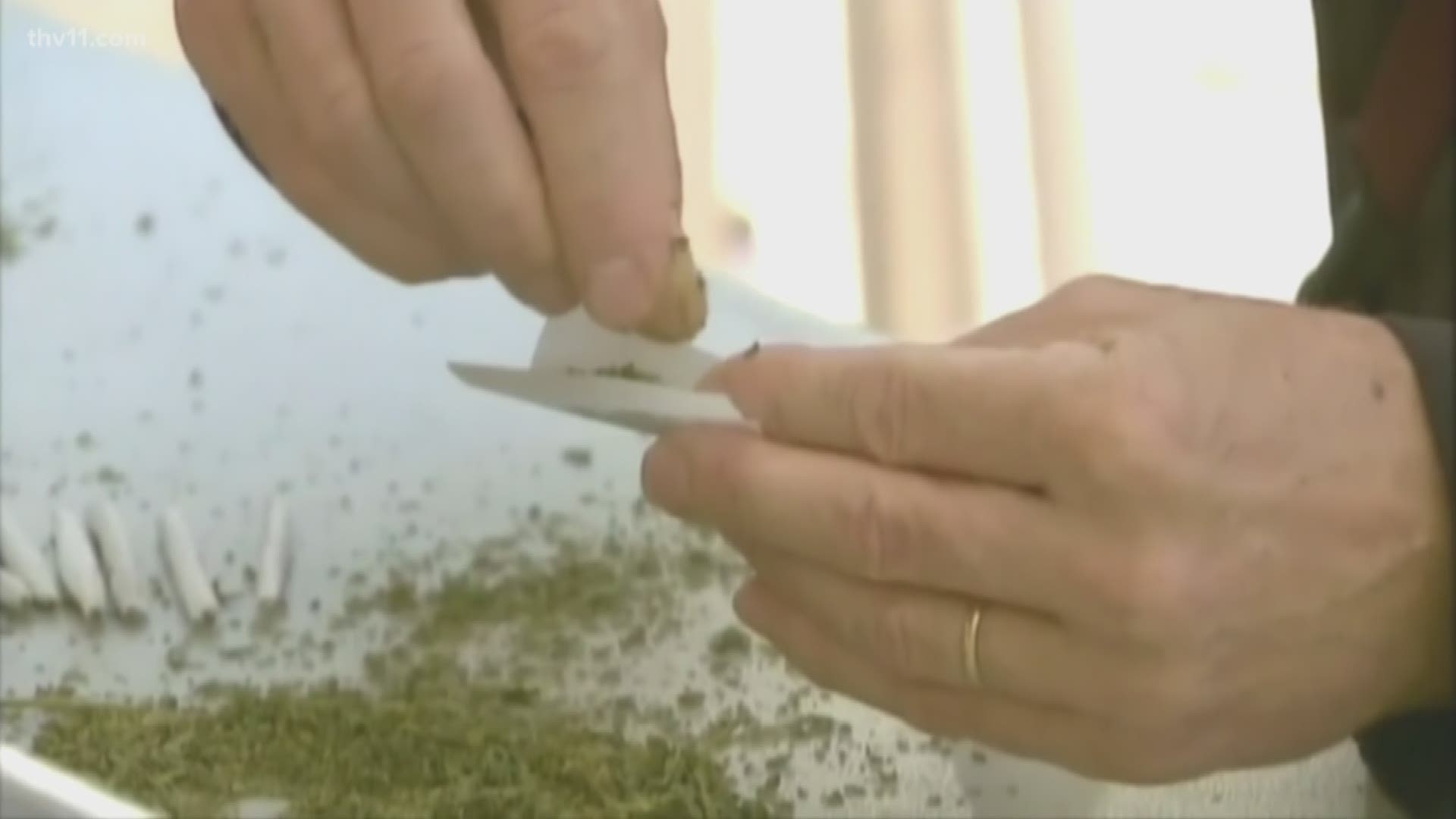When voters approved medical marijuana in 2016 it created opportunities. Experts figure some 30,000 people will take advantage of the drug.
Amendment 98 also mandated that Arkansans make up at least 60 percent of any ownership group.
An 11News investigation has shown that those qualifications are among items the Alcohol Beverage Control board has had to examine in the months since cultivators and dispensary winners were announced.
But there are some would-be marijuana millionaires with proven Arkansas roots. They had to answer the thorny questions of how to prove to the government that you can run a business when that business has never legally existed until now.
“As a businessman, I just put it together like a business plan like I normally would,” said Dragan Visentic, the part owner of Green Springs Medical in Hot Springs. “It kind of became surreal mid-December when the scores came out and I think mine was like the fourth highest in the state.”
Others chose to focus on those new customers.
“I think that I was excited to think that I could make a difference for all those people,” said Elizabeth Barrett co-owns Rock City Harvest in Conway who worked with her son and partners to defy the odds and secure a dispensary license without high-powered consultant help. “Quite honestly the dining room table is where we worked it out.”
Both credit original ideas for winning the merit-based process. Visentic also owns a vape shop and figured he could help pain patients the way his vaping products help tobacco smokers.
“I want to help people and get them to change over to a natural product that's healthier, and so I think we kind of pioneered that part of it,” he said. “I don't think too many people came up with that idea.”
Others chose to find parallel paths to help patients and make profits.
“I think a lot of them are hopeful, and there's so many people that are hurting that don't want to hurt anymore,” said Dr. Randy Hill, who is working with three partners to approve medical marijuana cards.
“There's a buzz about it. People are excited that there's something they can take with all the stigma around opioids. You go into your doctor’s office now and feel like a drug addict.”
The people we spoke with have all encountered varying levels of discomfort here in the buckle of the Bible belt.
“We took a big risk in the community,” said Dr. Hill, who fell back on his hospice experience for motivation while vowing his business isn’t a rubber stamp.
“Our reputations were at stake. We didn't know what the patients would think about this. We didn't know what the community would think. We could have been pariahs.”
Barrett is coming out of retirement after running a nursery and greenhouse.
“It was a horticultural business, and of course cannabis is in that realm,” she said. “So it's not such a difference but every, every detail is highly, highly regulated.”
And that's been part of the challenge to these locals making money as they had to D-I-Y the applications.
“I do know there were a lot of companies that had consulting firms that helped with their applications,” Visentic said. “Maybe they even did more than that. I don't agree with that because that was maybe a bit of an unfair playing field.”
“Anytime there's money involved, there's going to be people that try to get their piece of the pie,” said Dr. Hill with resignation.
Those out-of-state operators may be able to turn a profit sooner. That’s something the smaller operations are trying to be realistic about.
“You know it could easily turn into a million dollar investment,” Barrett said.
“Whether or not it turns into a million dollars in returns? I think at the end of the day this is a business.”
Early indications are many customers held off getting marijuana cards amid uncertainty over when stores would open. Despite the slow start, these owners remain cautiously optimistic.
“I think that once the first dispensary opens, I think that those numbers will be just out of this world,” Visentic said.
“We need to find a way that helps people with these really tragic and chronic diseases that seem to be so prevalent these days,” Barrett said while adding a loved one's struggle with Alzheimer’s disease inspired to go into business. “I think that cannabis is going to serve a really good role in that.”
“I hope that people that are getting into this industry realize that there's a right reason for this and wrong reason for it,” said Dr. Hill.

